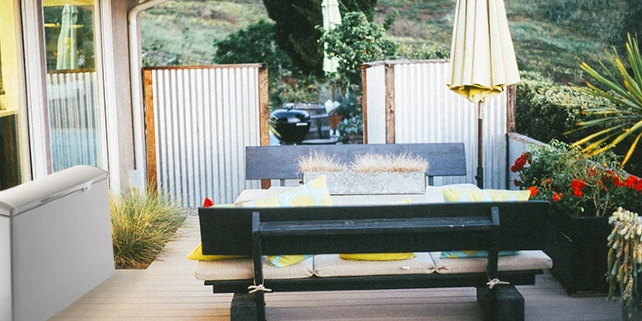Many homeowners wonder if they can keep a freezer outside. While it might seem convenient to store your extra food or frozen goods in an outdoor unit, there are several factors to consider before making this decision. This article will delve into the key aspects of keeping a freezer outdoors, helping you determine if it’s a viable option for your needs and climate.
We’ll explore the importance of freezer insulation, analyze the impact of outdoor temperatures, discuss essential protection measures against the elements, and provide guidance on optimal freezer placement for maximum performance. By the end of this article, you’ll have a comprehensive understanding of the factors involved in keeping a freezer outside.
Freezer Insulation
The level of insulation within your freezer plays a crucial role in its ability to maintain consistent temperatures, especially when exposed to fluctuating outdoor conditions.
Freezers designed for outdoor use typically feature thicker walls and advanced insulation materials that effectively resist heat transfer. These specialized freezers are often equipped with features like double-walled construction, polyurethane foam insulation, and weather-resistant seals to minimize energy loss and maintain optimal freezing temperatures even in extreme climates.
Standard freezers, on the other hand, may not possess the same level of insulation as their outdoor counterparts. If you’re considering keeping a standard freezer outside, it’s essential to assess its insulation capabilities and understand that it might require additional protection measures to function effectively.
Outdoor Climate Considerations
Your local climate significantly influences the feasibility of keeping a freezer outside.
Extreme temperatures, both hot and cold, can put significant stress on a freezer’s ability to maintain consistent freezing temperatures. In scorching summer months, direct sunlight and high ambient temperatures can cause the freezer to work overtime, potentially leading to energy inefficiency and compromised cooling performance. Conversely, frigid winter conditions can also pose challenges, as the freezer may struggle to generate enough heat to counteract the cold environment.
Before deciding to keep a freezer outside, carefully evaluate your region’s typical temperature fluctuations throughout the year. Consider factors like average summer highs, winter lows, and the frequency of extreme weather events.
Protecting Your Freezer from the Elements
Regardless of the freezer’s insulation level or your climate, it’s crucial to protect it from the elements to ensure optimal performance and longevity.
Exposure to direct sunlight can significantly increase the internal temperature of a freezer, leading to reduced cooling efficiency and potential food spoilage. Consider positioning your freezer in a shaded area, such as under a covered patio or beside a tall structure that provides shade during the day. Additionally, precipitation can damage the freezer’s exterior and potentially compromise its electrical components. Ensure your freezer is located in an area protected from rain and snow, or invest in a weatherproof cover to shield it from the elements.
Freezer Placement for Optimal Performance
The location of your freezer outside can significantly impact its performance and energy efficiency.
Avoid placing your freezer near heat sources, such as grills, air conditioners, or direct sunlight. These sources can raise the ambient temperature around the freezer, forcing it to work harder to maintain freezing temperatures. Similarly, avoid placing your freezer in a cramped or poorly ventilated area, as this can restrict airflow and hinder its cooling capacity.
Ensure adequate space around the freezer for proper ventilation, allowing for air circulation on all sides.
Conclusion
Determining whether can you keep a freezer outside involves careful consideration of several factors, including freezer insulation, outdoor climate conditions, and protection measures against the elements. While some freezers are specifically designed for outdoor use, standard models may require additional precautions to function effectively in fluctuating temperatures. By evaluating these factors and implementing appropriate safeguards, you can make an informed decision about whether keeping a freezer outside is suitable for your needs and circumstances.



